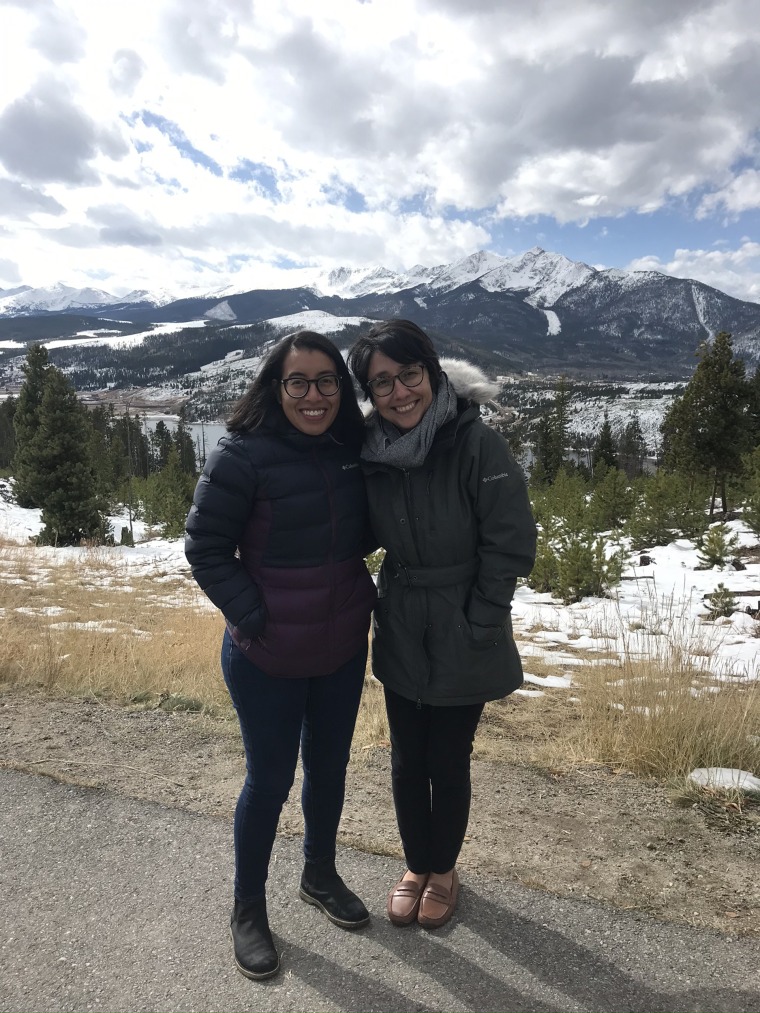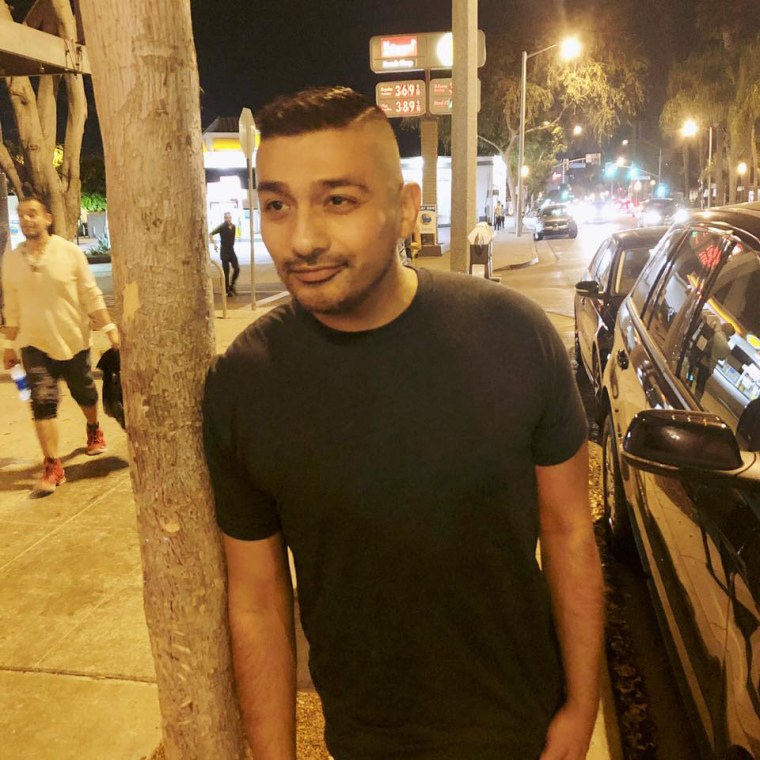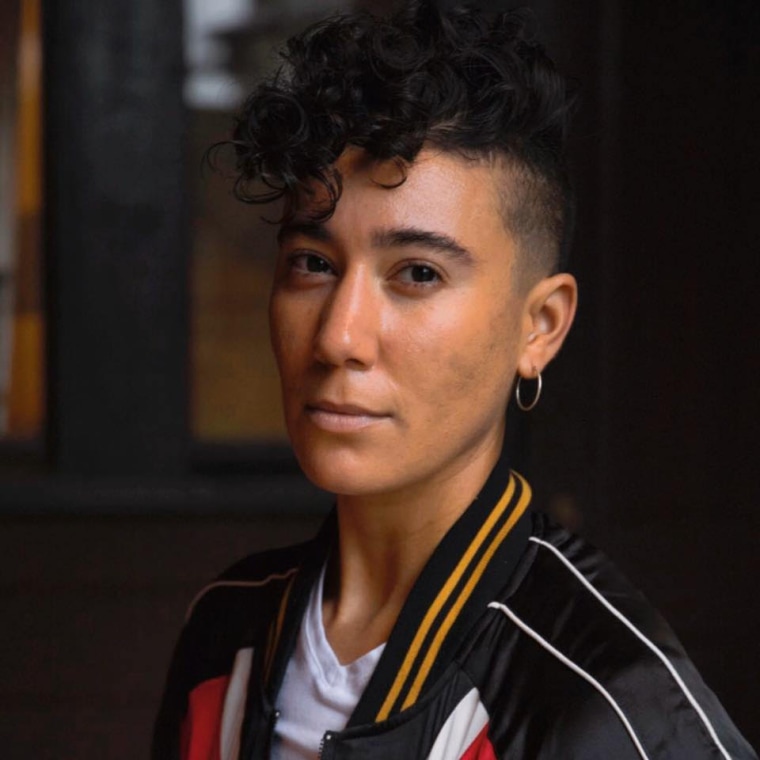LGBTQ Latinx Celebrate Victories, Worry about Ongoing Violence
On her wedding day, Nicole Castillo knew that she was making a mistake. She was 20 years old, and both she and her husband knew that she was not straight.
“But at the time, it didn’t feel like it was an option to not be married, and to come out,” she said. “I was concerned about harming my family, and I stayed in that marriage for some time.”

It took Castillo, now 36, until her mid-20s to understand her sexual orientation. “I was from a generation with almost no LGBT visibility. I didn’t know of any gay or queer women.”
As Pride Month winds down, Latinx LGBTQ people report a mixture of optimism and concern for their communities, on issues ranging from the Black Lives Matter movement to violence against transgender people.
Latinx LGBTQ people say that they see significant progress in the struggle for equality, yet stress that the fight for their rights is far from over.
Castillo, from Colorado, said she doesn’t mind that in-person Pride celebrations have been canceled due to the COVID-19 pandemic. “The Pride events are great, but they have become very mainstream, and it sometimes seems like the important issues can get lost.”
In contrast, she noted, “the Black Lives Matter protests are the most immediate, the most raw. That feels in a way more authentic that what Pride has become.”
From Stonewall to increased visibility
The Latino LGBTQ community has a rich heritage of activism. The first openly gay candidate for public office in the U.S. was Jose Julio Sarria, who ran for the San Francisco Board of Supervisors in 1961. In New York, one of the people credited with starting the 1969 Stonewall Riots — which helped inspire the beginning of the LGBT rights movement — was Sylvia Rivera, a transgender Puerto Rican woman.
In Los Angeles, Robbie Rodriguez, 38, program director for Equality California, said that the last several years have been challenging for Latinx LGBTQ people.
“We have dealt with the very hostile Trump/Pence administration, which has not made me feel great as a Latinx gay man,” Rodriguez said. “Almost every day, the president incites fear and emboldens bigots to be open with racism, homophobia and transphobia.”

But Rodriguez is feeling optimistic because of two recent Supreme Court rulings, one that makes it illegal for employers to discriminate against people on the basis of sexual orientation and gender identity, and the other temporarily preserving DACA, the program that has granted deportation relief to young immigrants. “And we should look at the sense of solidarity that has developed in the community as a result of police brutality against African Americans,” he said. “I’ve been pleasantly surprised at the LGBTQ+ community showing up and showing allyship to the Black community, and lifting up their experiences.”
The visibility of Latinx LGBTQ characters in the media is heartening to Rodriguez, who recalled watching “The Real World” on MTV when he was a kid. “I watched the show with my family, and I remember seeing Pedro Zamora, who was out and HIV-positive. That meant a lot to me.”
In recent years, there has been increased Latinx LGBTQ representation on television, on shows like “Pose,” “One Day at a Time,” and “Love, Victor.” A 2019 GLAAD report found that the percentage of Latinx LGBTQ characters had increased on broadcast and cable, though the percentages on streaming dropped.

Vico Ortiz, a performer in Los Angeles who has appeared on shows like “Vida” and “American Horror Story,” has seen a shift in the public views of LGBTQ people—and believes that the entertainment industry plays a major role. “Having shows with queer characters is important. People who might not know any queer people see these shows, and hopefully that opens up conversations from a place of empathy and compassion.”
Ortiz, a millennial who identifies as nonbinary, describes the last few weeks as a whirlwind. “The anti-discrimination ruling at the Supreme Court was amazing, but literally two days before that, the Trump administration announced that it was taking away health care for transgender people. It’s like whiplash on your heart; we make fantastic strides, and then other stuff happens. It is frustrating; I want future queer youth not to have to deal with any of these issues.”
Recommended
OUT NEWSPride 2020 marks new era for LGBTQ movement, artist Alok Vaid-Menon says
OUT NEWSOn Pride’s 50th anniversary, the ‘revolution’ may have finally arrived
Ortiz noted the absence of in-person Pride events this year, but said that the Black Lives Matter movement was, for now, more important. “We might be missing some glitter parties, but we wouldn’t have Pride without riots and protests.”
Ortiz felt a heaviness on June 12, the fourth anniversary of the Pulse nightclub shooting in Orlando, Florida, that left 49 people dead. “I was also thinking of the queer people who may be isolating or quarantined with nonsupportive people.”
‘Fight harder, stronger and fiercer’
Like other Americans, Latinx LGBTQ people are facing the ongoing threat of the coronavirus. The pandemic has disproportionately affected Latinos, putting their health and economic well-being at risk.
For Dr. Rafael Campo, 55, the pandemic carries echoes of a previous health crisis that struck the Latinx LGBTQ community. Campo, who teaches and practices medicine at Harvard Medical School, graduated before drug treatments for HIV/AIDS had been developed.
“There is a sad resonance in the way that HIV/AIDS originally impacted the Latinx LGBTQ population, and what is happening with coronavirus now,” he said, pointing out parallels in the lack of government response, the lack of access to care, the stigma of infection and the health disparities. “How these two very different viruses impact communities of color is part of the symmetry.”
At times, Campo has felt beleaguered by the trials that the Latinx LGBTQ community seems to be facing. Some of his patients who survived the AIDS epidemic feel a sense of renewed trauma, because they are now at risk for COVID-19. “But there are reasons to be hopeful. The demonstrations and activism around racial justice show the strength of our communities. Adverse circumstances can really bring us together and help our communities to become stronger and better.“
“We carry pride within ourselves—and no one can take that away.”
In Puerto Rico, the human rights activist Pedro Julio Serrano, 45, is concerned with the ongoing violence against transgender people, which in his view is not getting the media attention it deserves. “All over the U.S., members of the transgender community are being killed, and this doesn’t occur in a vacuum. Trump’s bigotry and divisive language has contributed to this cycle of violence. “
Puerto Rico’s new civil code, which defines myriad aspects of everyday life, is another issue that is deeply troubling to Serrano. The update coded has been controversial because it potentially could be used to take away LGBTQ rights. “It makes us invisible,” Serrano said. “It no longer includes discrimination protections. Many legal experts say it is inconsistent and poorly written, a judicial mess.”
The Latino LGBTQ community remains committed to the struggle for full equality, Serrano said. “We are going to come back and fight harder, stronger and fiercer.”
Likewise, Serrano said that losing the in-person Pride events was just a temporary setback. “For sure, when you are with other people you feel empowered and you feel solidarity. But you cannot cancel true pride. It is the product of many victories and struggles. We carry pride within ourselves — and no one can take that away.”